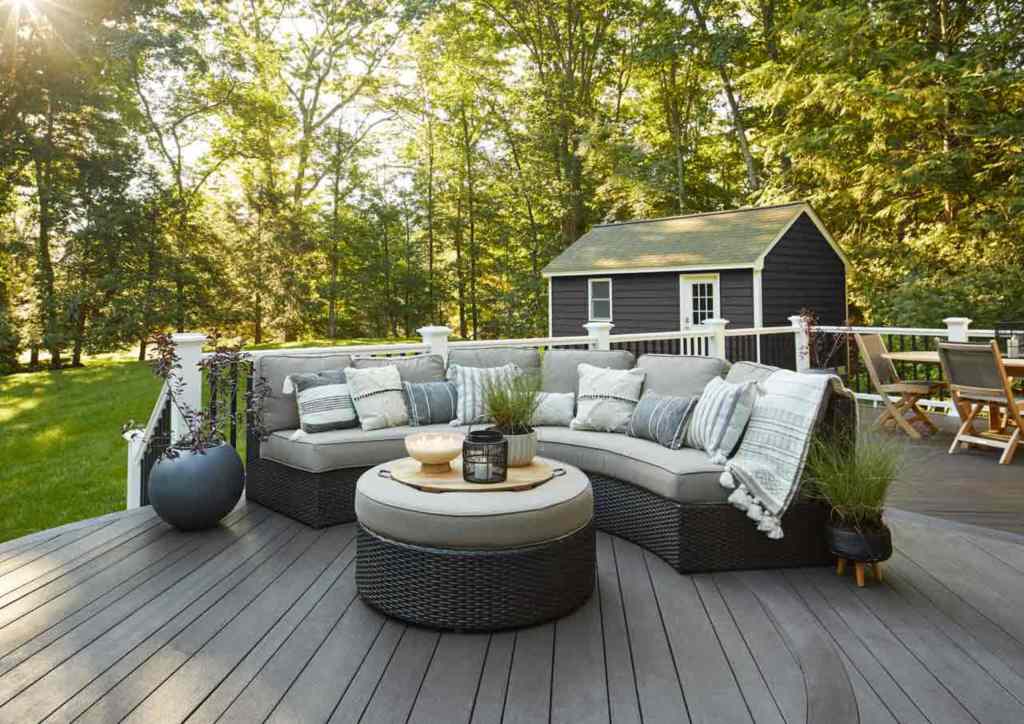With innovations in decking come advances in material and capability, but also a host of confusion. “Composite” seems to have become a catch-all term for non-natural wood decking, despite the multitude of options available to us. Composite and even Vinyl are legitimate terms tossed around, but PVC decking is the medium we get excited about, and ultimately what most of our clients land on.
What’s the difference?
Composite decking blends plastic polymers and wood pulp into a board, much like traditional lumber, which is then wrapped in polymer for weatherizing. Vinyl by contrast consists of plywood coated in a vinyl outer membrane. Both of these resulting planks include wood, which runs counter to many of our clients’ goal of avoiding natural elements for better durability.
PVC, or Polyvinyl Chloride for tongue twister enthusiasts, features no wood whatsoever. It’s a 100% synthetic product, uniquely molded to result in a higher-strength and watertight deck plank to stand the test of time. Literally. Most PVC decks will outlast the homeowner’s time enjoying it.
What’s so great about PVC? Compared to wood or composite, PVC’s advantages are lengthy.
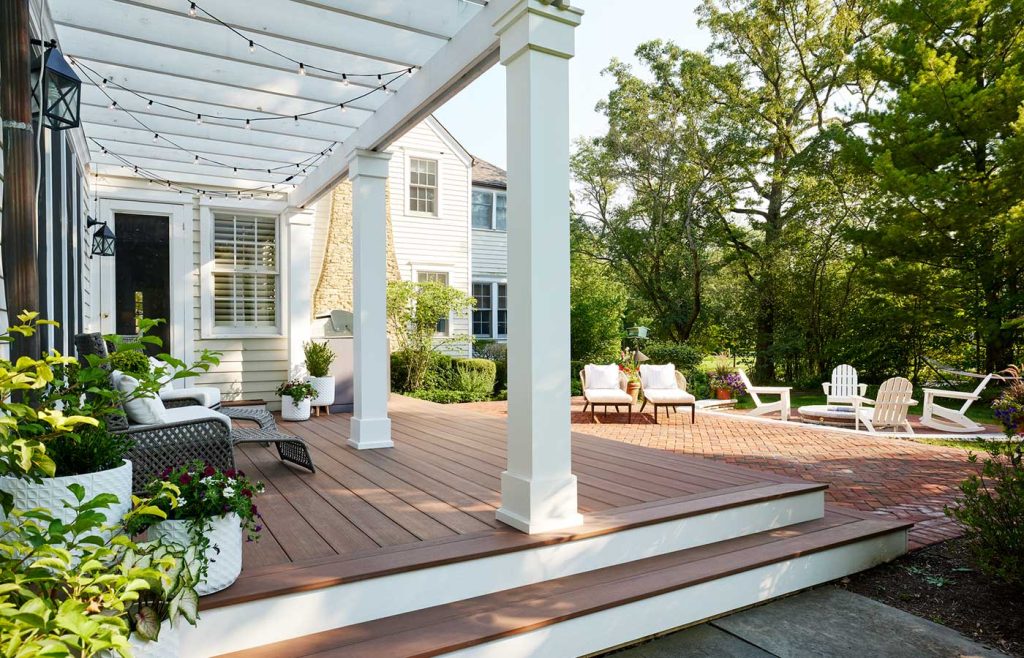
A half century of satisfaction
As we’ve mentioned, a PVC deck project tends to be a one-time-deal, with no need to replace or repair for at least 30 years, with TimberTech’s warranty extending to a whopping 50 years. There isn’t much infrastructure in a home or business that lasts five decades, without worry or arduous upkeep. Composite still out-performs wood in this arena with up to 25 years of life, but not without ongoing maintenance. A great way to add to a home’s resale value is with a deck the next family can enjoy all the way through their empty nester years.
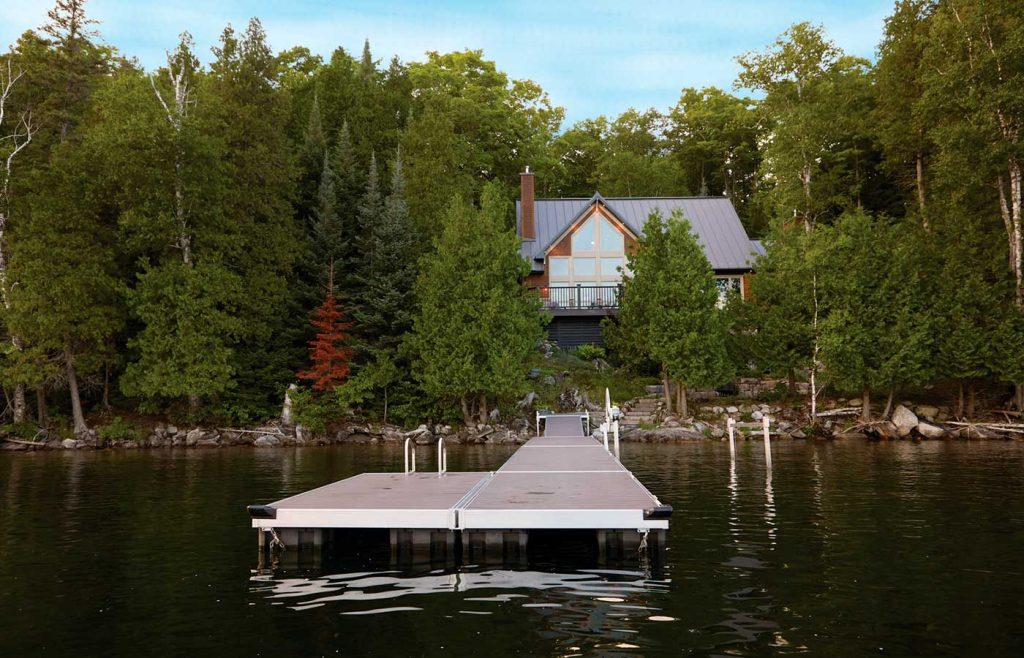
PVC does not, cannot, grow mold
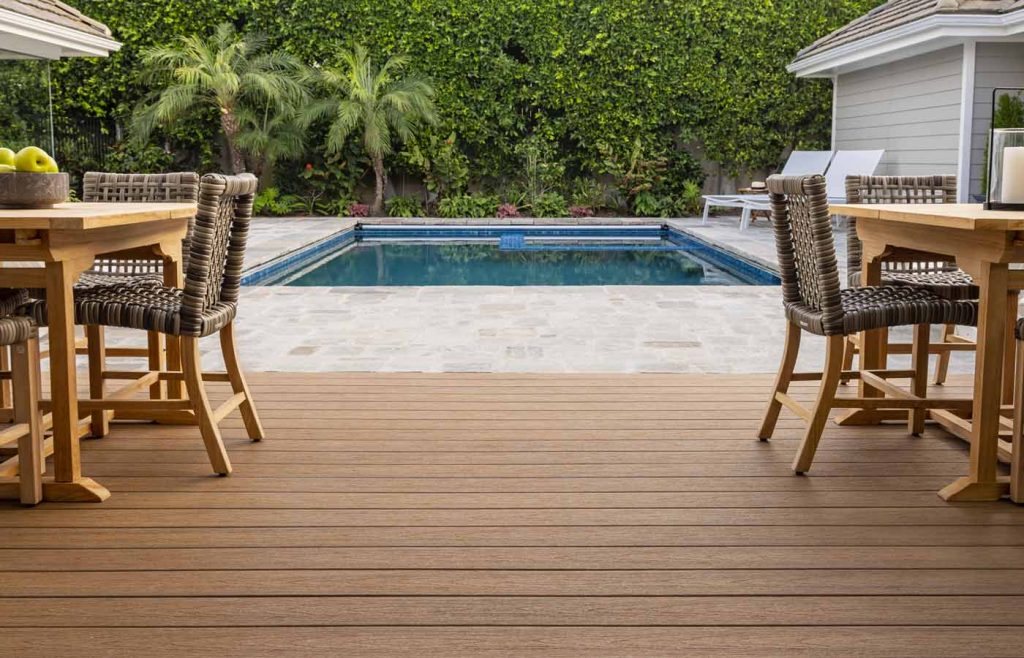
Warp no more
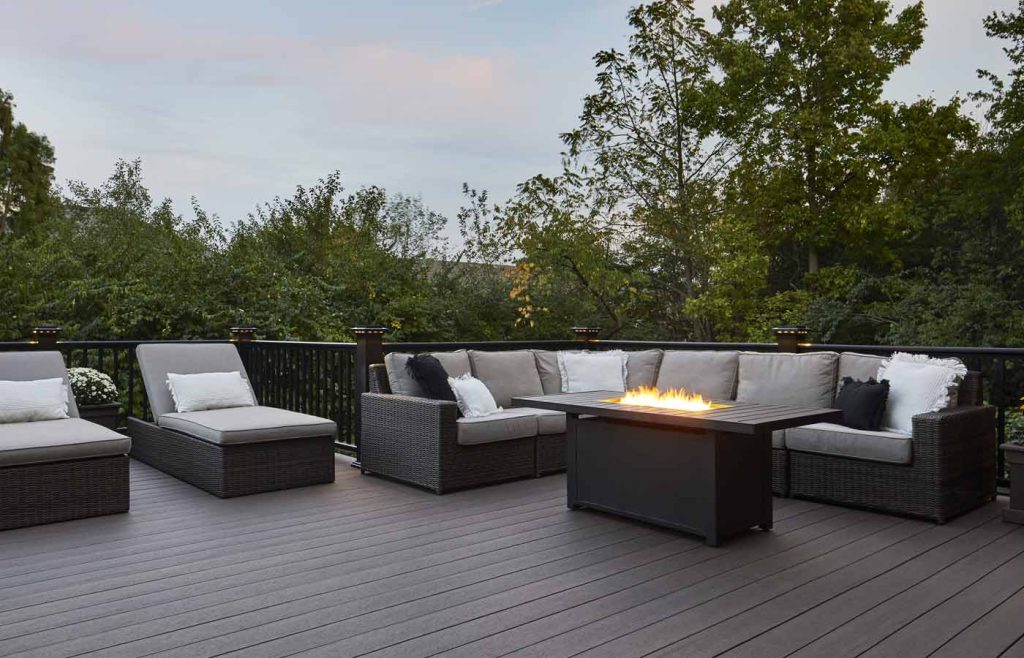
No shoes required
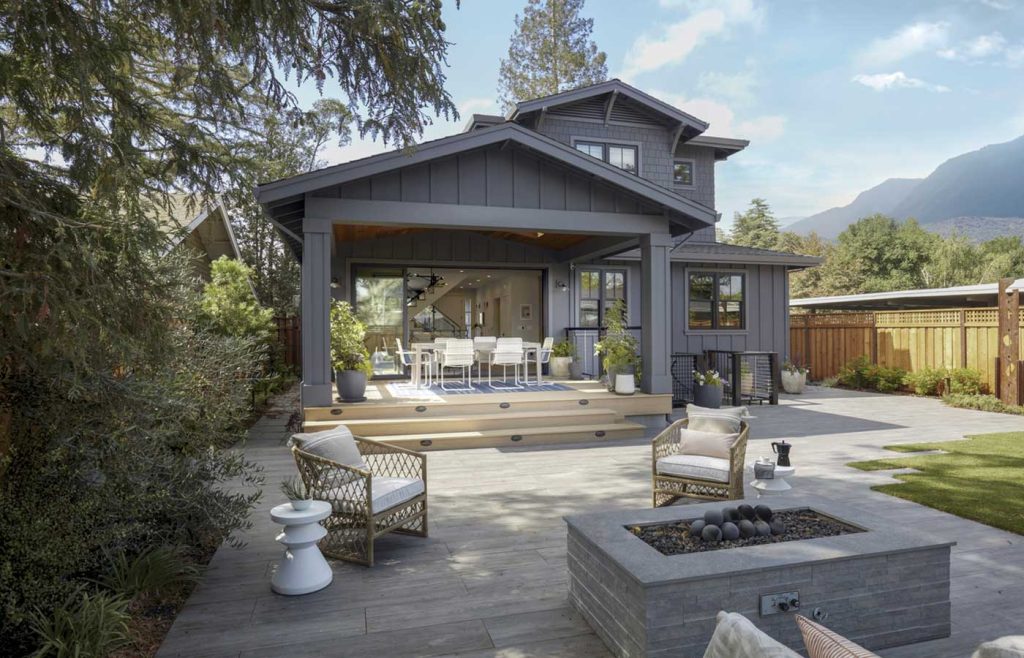
PVC is pretty
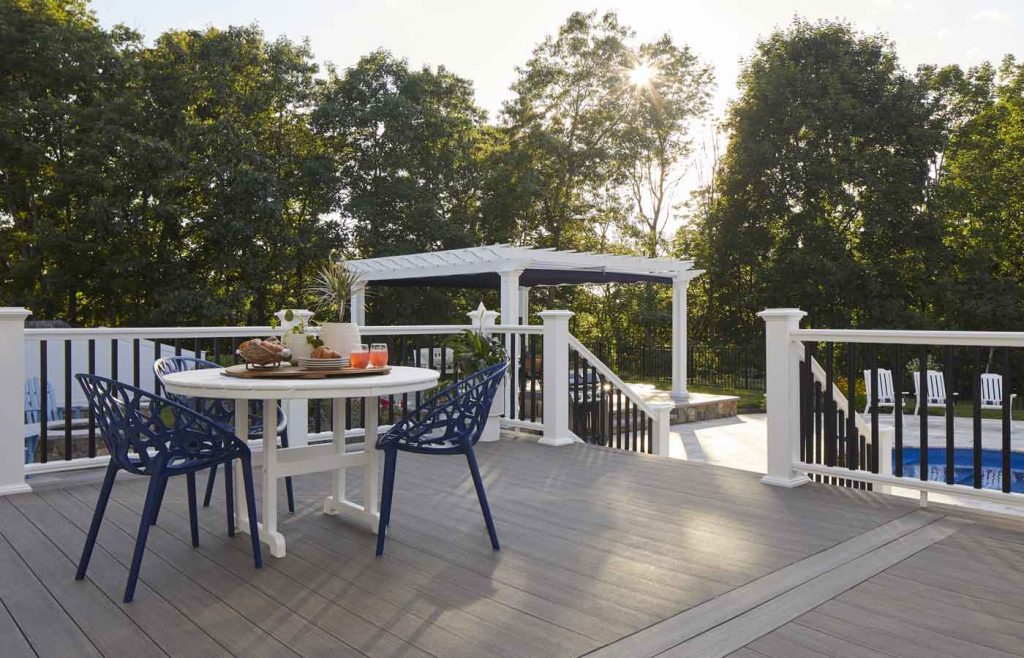
Next generation friendly
Recyclable decking isn’t high on the list of recommendations for achieving a smaller carbon footprint, but the reality is not every resident keeps the previous homeowner’s deck layout. As backyards are redesigned, massive loads of composite decking is simply torn up and tossed in a landfill, since unlike PVC, it is not recyclable. Composite’s lifespan is shorter as well, so the frequency with which it needs to be replaced is higher. Not only is PVC a longer lasting choice, it’s a more sustainable option that can be reused and refashioned again and again, well past our lifetime.
While all decking materials are going to improve your outdoor experience, PVC time and again is our clients’ clear winner in terms of longevity, overall cost of ownership, and a lifetime of ease. Reach out today to get the conversation started.


